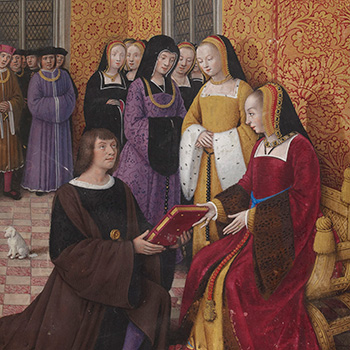Quiz Topic Sheet
The 16th Century in Literature
The 16th century in literature was a time of profound cultural and intellectual upheaval, marked by the rise of humanist thought, religious tensions, and the transformation of artistic and linguistic expression. In this vibrant era, literature became a tool of national affirmation, a space for critical freedom, and a field of formal experimentation.
Advertisement
Humanism and Critical Thought
- Michel de Montaigne embodied humanist skepticism with his Essays, meditations on self, death, truth, and human experience.
- Étienne de La Boétie, his close friend, wrote Discourse on Voluntary Servitude, a foundational text in political criticism.
- Erasmus called for moral and intellectual reform of the Church in In Praise of Folly, an influential satirical work.
- Thomas More imagined an ideal society in Utopia, reflecting humanist concerns with governance and justice.
- Jean Bodin, in Six Books of the Republic, laid modern foundations for political thought on sovereignty.
- Martin Luther, though a theologian, had a major impact on literature through the dissemination of his ideas and use of print.
The Renewal of the French Language
- The Pléiade, a group of poets led by Pierre de Ronsard and Joachim du Bellay, sought to enrich the French language and elevate it through poetry.
- Ronsard, dubbed “prince of poets,” composed Les Amours and numerous sonnets celebrating beauty and nature.
- Du Bellay expressed his exile in Rome in Les Regrets and published Defense and Illustration of the French Language to legitimize French literature.
- Clément Marot, a transitional figure between the Middle Ages and the Renaissance, modernized poetry with a more personal tone.
Narrative and Fiction
- François Rabelais revolutionized French prose with Pantagruel, Gargantua, and The Fourth Book, combining satire, erudition, and freedom of tone.
- He circumvented censorship by publishing under a pseudonym and blending popular comedy with scholarly references.
- Characters like Panurge reflect free spirit, learned wit, and complex humanity.
- Marguerite de Navarre composed The Heptameron, a collection of stories blending morality, religion, and the female condition.
- Pastoral and chivalric novels experienced a revival, notably in Spain with Cervantes and Garcilaso de la Vega.
Theatre and Poetry in England
- William Shakespeare, born in Stratford-upon-Avon, became the leading playwright of the English Renaissance with works like Romeo and Juliet, Richard III, A Midsummer Night’s Dream, and The Merchant of Venice.
- His plays were performed at the Globe Theatre under Queen Elizabeth I, using blank verse to achieve rhythm and expressive freedom.
- Christopher Marlowe, author of Doctor Faustus and The Faerie Queene, influenced Shakespeare through his powerful language and tragic vision.
- Marlowe was killed in a tavern brawl at age 29, leaving a brief but impactful body of work.
- The sonnet, originating in Italy, spread widely in England, France, and Spain.
Epic and Classical Traditions
- Ariosto’s Orlando Furioso and Tasso’s Jerusalem Delivered renewed the epic poem genre in Italy.
- These heroic tales echoed the traditions of figures like Roland and Godfrey of Bouillon.
- Baldassare Castiglione’s The Book of the Courtier helped define the ideals of the cultivated Renaissance gentleman.
- Geoffrey Chaucer and John Milton, though from different centuries, were sometimes mentioned for context in tracing literary continuities.
- Montesquieu, though anachronistically referenced, actually belongs to the 18th century, yet comparative mentions may appear in discussions of evolving thought.
Advertisement
Quiz questions preview
-
What was the origin of the sonnet, a poem in 14 lines, which took hold in Europe in the 16th century?
Italy | France | England | Spain -
Which character from Rabelais, the son of a giant, symbolizes humanist education and a thirst for knowledge?
Gargantua | Epistémon | Frère Jean | Pantagruel -
Which Spanish poet introduced the Italian sonnet and popularized the eclogue in Castilian under Petrarch’s influence?
Fernando de Herrera | Miguel de Cervantes | Luis de Góngora | Garcilaso de la Vega -
Which Shakespeare play features a merchant caught in a cruel contract with a moneylender?
King Lear | Othello | Measure for Measure | The Merchant of Venice -
Which work by Shakespeare, inspired by a historical chronicle, features a 14th-century English king?
Henri V | Edward VI | Richard III | Henri IV


